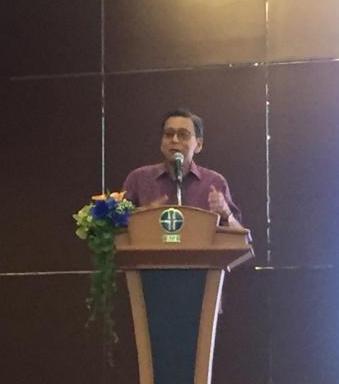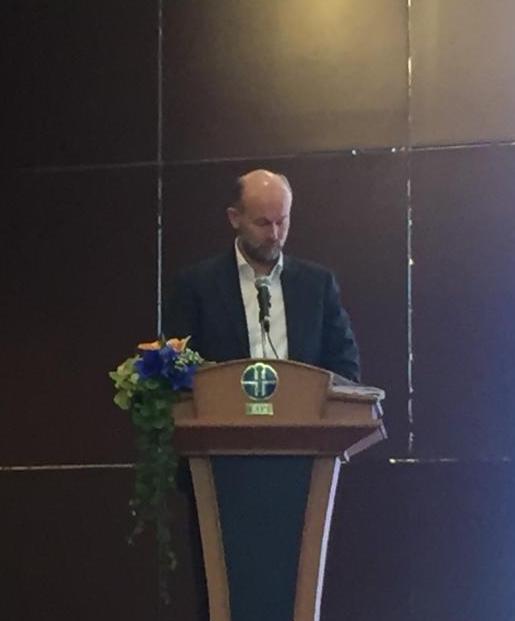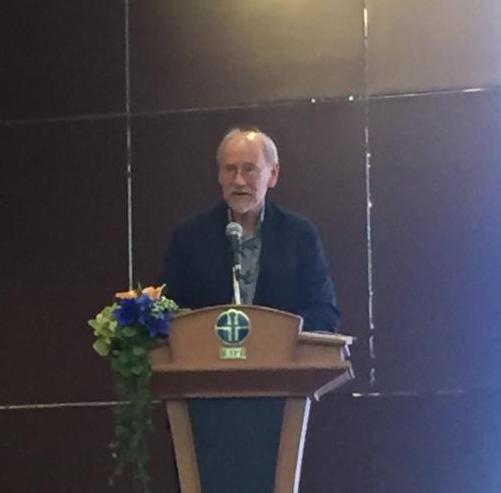Heading into the second term of Joko Widodo’s administration, this year’s Thee Kian Wie Lecture series discussed the future prospects and challenges of Indonesia’s economy. Entering its fourth year, the Thee Kian Wie Lecture series was hosted by the Indonesian Institute of Science (LIPI) on Tuesday, 30 April 2019. The Lecture series is organised to honor the late Thee Kian Wie (TKW), one of Indonesia’s foremost development economist and economic historians. This year, the Lecture coincides with the launch of the book The Indonesian Economy in Transition: The Jokowi Era and Beyond edited by Hal Hill (The Australian National University) and Siwage Dharma Negara (P2E LIPI and ISEAS-Yusof Ishak Institute).
Professor Boediono (Universitas Gadjah Mada and Vice President of Indonesia (2009-2014) opened the event with a keynote speech. In his speech, Professor Boediono acknowledged TKWs influence in how he taught economics, where a broader perspective on history should be given to students to contextualize theory. Moving on to the topic of Indonesia’s future, Professor Boediono suggested that we learn from the success of East Asian countries and focus on three main aspects: the quality of our human capital, institutions, and infrastructure. These three factors require an intergenerational effort that does not only focus on a one-year growth, but rather a long-term view of progress.
Allaster Cox (Australia’s Deputy Ambassador to Indonesia) continued the session with some reflections on the life and ideas of TKW. Allaster stated the importance of not divorcing economics from history and the context of its time. Looking back at Indonesia’s history, he believes that many have been achieved since the end of the New Order, particularly since Indonesia has become a highly decentralized country. Australia has also collaborated with the Indonesian government to give technical and intellectual support to help policy makers create new ideas to build Indonesia’s future.
Next, Professor Hal Hill (The Australian National University) presented some key points from the book The Indonesian Economy in Transition: The Jokowi Era and Beyond. Indonesia has shown 30 years of rapid economic growth and poverty reduction, prevailed through the Asian financial crisis (AFC) in 1998, and even transitioned from an authoritarian to a democratic rule. Indonesia’s economy has been constantly growing after AFC, and this is not common in the world. This goes to show that Indonesia will soon be not just a major regional power but also a major global power. Despite Indonesia’s historical success, some work still needs to be done. Looking toward Joko Widodo’s second term, Professor Hill presented a number of questions that needs to be answered by the government, which include, among others, how to make sure that Indonesia does not miss out on global export opportunities, how to attain faster and more sustainable economic growth (i.e. above 5%), how to achieve a more equitable development, and how to improve the quality of institutions.
Arianto Patunru (The Australian National University) presented his chapter entitled Rising Economic Nationalism in Indonesia. Indonesia’s globalization indicators such as foreign capital stock, merchandise exports, and migrant stock have a generally positive long run trend, despite some recent setbacks. In comparison to other countries such as China, India, and Vietnam, Indonesia is relatively less open to international trade, have more expensive export prices, and have a weaker currency. Many blame this on Indonesia’s current account deficits, which led to anti-import sentiments, despite Indonesia’s dependence on imported raw materials for production. Despite Indonesia’s low tariffs, non-tariff barriers such as permits, pre-shipment inspections, and local content requirements are still more commonly used than other countries to restrict imports. Even though these laws have been imposed before Joko Widodo’s term, his stance on trade has also been mixed and sometimes even contradictory. During his campaign, he has been mostly nationalistic, yet his implementations are mostly ambivalent and rather pragmatic. The growth of protectionist trend in the world may lead to a further increase of economic nationalism in Indonesia, but quoting Chris Manning, Arianto believes that Jokowi’s pragmatism may override his nationalism.
Finally, Agus Eko Nugroho (Economics Research Center – Indonesian Institute of Sciences, P2E LIPI) presented a topic that was not found in the book, which is financial inclusion in Indonesia. It is still a common perception that the problems of the financial system are only about productivity and efficiency and often overlooks the importance of financial inclusion. Agus explained that small and medium enterprises (SMEs) often do not have access to the banking sector, thus making them more familiar with cooperatives, pawnshops, and loan sharks. Micro credit programs, which are usually done by interest rate subsidies, serve as a solution for SMEs, but are also criticized for distorting the financial market and may lead to a crowding out effect. To reduce this distortive effect, Agus proposes that interest subsidies be reduced and only given to top-priority sectors.
For the complete presentation and Q&A session, please refer to the video and materials provided.
Media coverage:
- Harapan Boediono Terhadap Pembangunan Infrastruktur di Era Pemerintahan Jokowi
- Boediono: Manusia Berpotensi Tertinggal Oleh Robot
- Ini Resep dari Mantan Wapres Boediono, agar Indonesia Maju
- Boediono: Siapapun Pemimpinnya, Sinergitas Strategi Ekonomi Harus Dibangun
- ANUIndonesiaProject : 4th Thee Kian Wie Lecture – Prospek dan Tantangan Ekonomi Indonesia ke Depan
- Inilah Kunci Sukses Dari Mantan Wapres Boediono Agar Indonesia Menjadi Negara Maju
- Jokowi Harus Lebih Berani Reformasi Ekonomi







